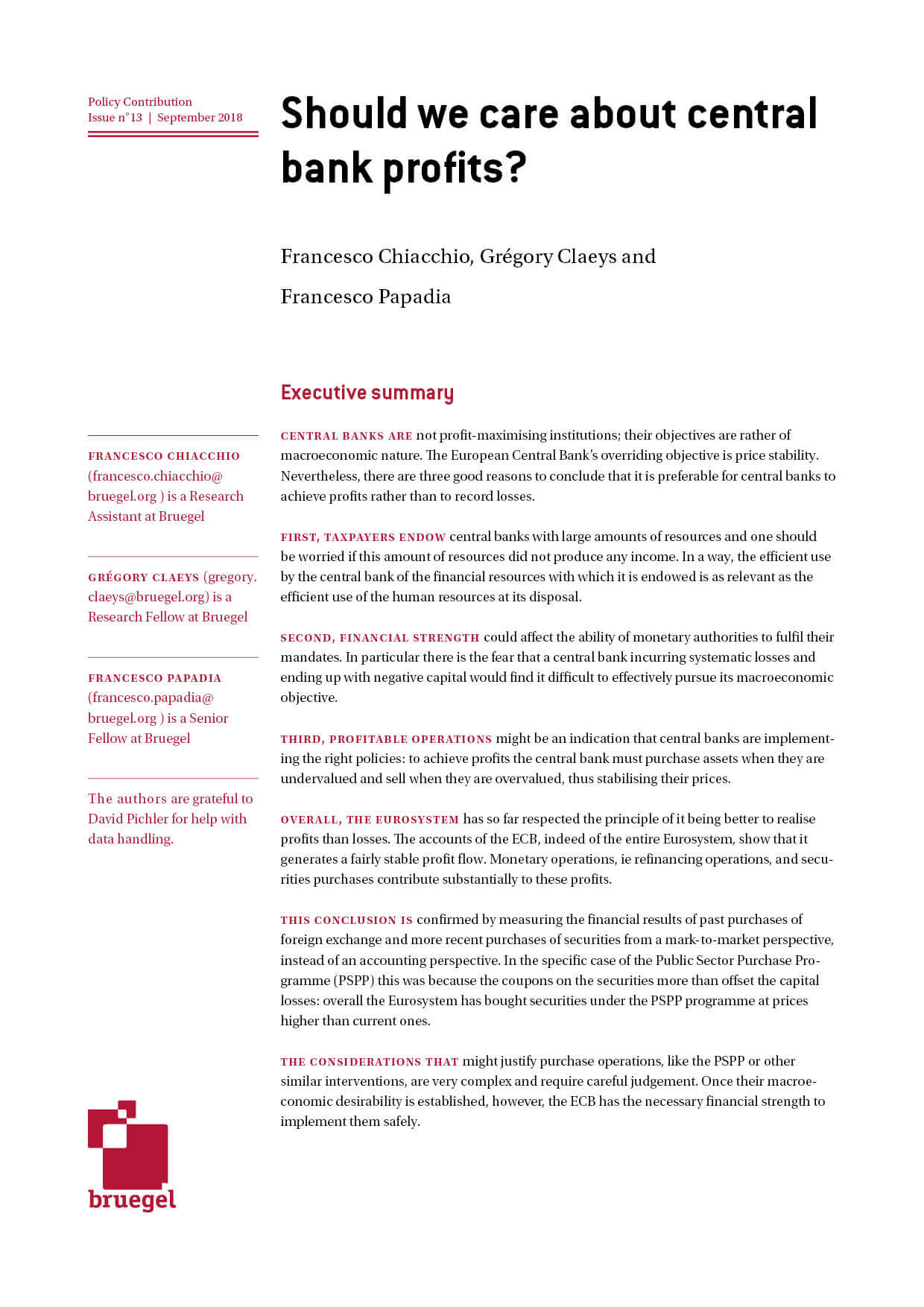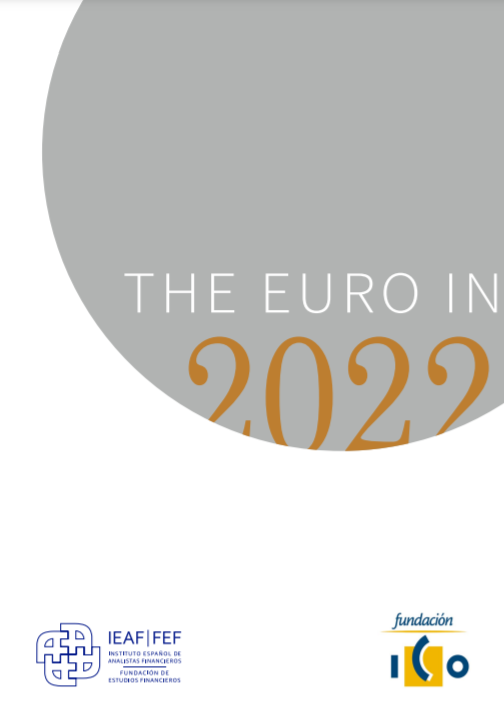Policy Contribution
Should we care about central bank profits?
The authors investigate the ECB’s profit-making activity of the last 20 years, assessing how this was achieved and the reasons why we should care more broadly about central banks generating profits.
Central banks are not profit-maximising institutions; their objectives are rather of macroeconomic nature. The European Central Bank’s overriding objective is price stability. Nevertheless, there are three good reasons to conclude that it is preferable for central banks to achieve profits rather than to record losses.
First, taxpayers endow central banks with large amounts of resources and one should be worried if this amount of resources did not produce any income. In a way, the efficient use by the central bank of the financial resources with which it is endowed is as relevant as the efficient use of the human resources at its disposal.
Second, financial strength could affect the ability of monetary authorities to fulfil their mandates. In particular there is the fear that a central bank incurring systematic losses and ending up with negative capital would find it difficult to effectively pursue its macroeconomic objective.
Third, profitable operations might be an indication that central banks are implementing the right policies: to achieve profits the central bank must purchase assets when they are undervalued and sell when they are overvalued, thus stabilising their prices.
Overall, the Eurosystem has so far respected the principle of it being better to realise profits than losses. The accounts of the ECB, indeed of the entire Eurosystem, show that it generates a fairly stable profit flow. Monetary operations, ie refinancing operations, and securities purchases contribute substantially to these profits.
This conclusion is confirmed by measuring the financial results of past purchases of foreign exchange and more recent purchases of securities from a mark-to-market perspective, instead of an accounting perspective. In the specific case of the Public Sector Purchase Programme (PSPP) this was because the coupons on the securities more than offset the capital losses: overall the Eurosystem has bought securities under the PSPP programme at prices higher than current ones.
The considerations that might justify purchase operations, like the PSPP or other similar interventions, are very complex and require careful judgement. Once their macroeconomic desirability is established, however, the ECB has the necessary financial strength to implement them safely.











